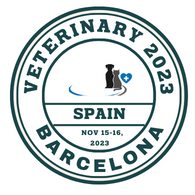Zoonotic & Infectious Diseases
A Zoonosis is an infectious disease that has jumped from a non-human animal to humans. Zoonotic pathogens may be bacterial, viral or parasitic, or may involve unconventional agents and can spread to humans through direct contact or through food, water or the environment. They represent a major public health problem around the world due to our close relationship with animals in agriculture, as companions and in the natural environment. Zoonoses can also cause disruptions in the production and trade of animal products for food and other uses.
Zoonotic and infectious diseases are a significant concern for both animal and human health. These diseases are caused by pathogens that can be transmitted between animals and humans. Understanding and managing these diseases are crucial to preventing outbreaks and protecting public health. Here is an overview of zoonotic and infectious diseases: Zoonotic Diseases: These are diseases that can be transmitted from animals to humans. Examples include rabies, Lyme disease, and avian influenza (bird flu). Infectious Diseases: These are caused by pathogens such as bacteria, viruses, fungi, and parasites. They can be contagious among both animals and humans. Examples include COVID-19, HIV/AIDS, and tuberculosis.
Related Conference of Zoonotic & Infectious Diseases
Zoonotic & Infectious Diseases Conference Speakers
Recommended Sessions
- Animal Structure & Function
- Animal Vaccines
- Emergency and Critical Care
- Internal Medicine
- Anesthesia and Analgesia
- Animal Dermatology
- Animal Genetics
- Animal Microbiology
- Animal Physiology
- Animal Reproduction
- Animal Welfare
- Behavioral Medicine
- Clinical Pharmacology
- Environmental Threats
- Human-Animal Bond
- Layer Poultry Farming
- Small Animal Medicine and Surgery
- Veterinary and Animal Science
- Veterinary and Social Science Research
- Veterinary Dentistry
- Veterinary Parasitology
- Veterinary Telemedicine
- Wildlife and Ecosystem Health
- Zoonotic & Infectious Diseases

